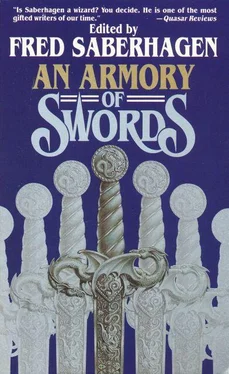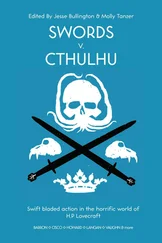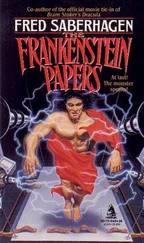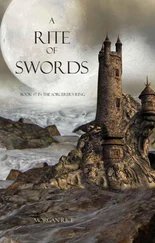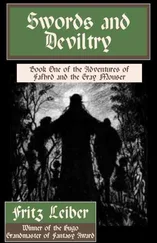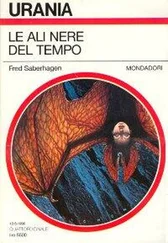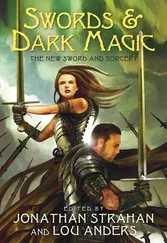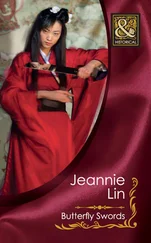Fred Saberhagen - An Armory of Swords
Здесь есть возможность читать онлайн «Fred Saberhagen - An Armory of Swords» весь текст электронной книги совершенно бесплатно (целиком полную версию без сокращений). В некоторых случаях можно слушать аудио, скачать через торрент в формате fb2 и присутствует краткое содержание. Год выпуска: 2012, ISBN: 2012, Издательство: Tor Fantasy, Жанр: Фэнтези, на английском языке. Описание произведения, (предисловие) а так же отзывы посетителей доступны на портале библиотеки ЛибКат.
- Название:An Armory of Swords
- Автор:
- Издательство:Tor Fantasy
- Жанр:
- Год:2012
- ISBN:9780812522839
- Рейтинг книги:4 / 5. Голосов: 1
-
Избранное:Добавить в избранное
- Отзывы:
-
Ваша оценка:
- 80
- 1
- 2
- 3
- 4
- 5
An Armory of Swords: краткое содержание, описание и аннотация
Предлагаем к чтению аннотацию, описание, краткое содержание или предисловие (зависит от того, что написал сам автор книги «An Armory of Swords»). Если вы не нашли необходимую информацию о книге — напишите в комментариях, мы постараемся отыскать её.
An Armory of Swords — читать онлайн бесплатно полную книгу (весь текст) целиком
Ниже представлен текст книги, разбитый по страницам. Система сохранения места последней прочитанной страницы, позволяет с удобством читать онлайн бесплатно книгу «An Armory of Swords», без необходимости каждый раз заново искать на чём Вы остановились. Поставьте закладку, и сможете в любой момент перейти на страницу, на которой закончили чтение.
Интервал:
Закладка:
Fred Saberhagen, Walter Jon Williams, Gene Bostwick,Robert E. Vardeman, Thomas Saberhagen, Pati Nagle, Michael A. Stackpole, Sage Walker
An Armory of Swords
Blind Man's Blade
Fred Saberhagen
The gods’ great Game of Swords, and with it the whole later history of planet Earth, might have followed a very different course had the behavior of one or two divine beings-or the conduct of only one man-been different at the start. Even a slight change at the beginning of the Game produced drastic variation in the results. And Apollo has been heard to say that there have been several such beginnings.
One of those divergent commencements-which, in the great book of fate, may be accounted as leading to an alternate universe, or perhaps simply as a false start-saw all of the gods’ affairs thrown into turmoil at a remarkably early stage, even before the first move had been made in the Game. It happened on the day when the Swords, all new and virginally fresh, all actually still warm from Vulcan’s forge, were being brought to the Council to be put into the hands of those players who had been awarded them by lot.
The sun had just cleared the jagged horizon when Vulcan arrived at the open council-space, there to join the wide circle of deities already assembled in anticipation of his coming. They were his colleagues, all of them standing much taller than humans, their well-proportioned bodies casting long shadows in the lingering mists, but still dwarfed by the surrounding rim of icy mountains. There were moments when they all looked lost under the breadth of the cold morning sky.
The Smith brought with him a whiff of forge-smoke, a tang of melted meteoric iron. His cloak of many furs was windblown around his shoulders, and his huge left hand cradled carefully its priceless cargo of steel and magic, eleven weighty packages held in a neat bundle. And, despite the fact that a small but vocal minority of the Council still argued that no binding agreement on the rules of the Game had yet been reached, the Swords-almost every one of the Twelve Swords-were soon being portioned out among the chosen members of the meeting.
Among those gods and goddesses who received a Sword in the distribution, no two reactions were exactly the same. Most were pleased, but not all. For example, there was the goddess Demeter, who stood looking thoughtfully at the object limping Vulcan had just pressed into her strong, pale hands. She gazed at the black sheath covering a meter’s length of god-forged steel, at the black hilt marked by a single symbol of pure white.
Demeter said pensively, in her high, clear voice: “I am not at all sure that I care to play this Game.”
Mars, who happened to be standing near her, commented: “Well, many of us do want to play, including some who have been awarded no Sword at all. Hand yours over to someone else if you don’t want it.” Mars had already been promised a Sword of his own, or his protest would doubtless have been more violent. Actually he thought he could do quite well in the Game without benefit of any such trick hardware; but he would not have submitted quietly to being left off the list.
“I said I was not sure,” Demeter responded. A male deity would probably have tossed the sheathed weapon thoughtfully in his hand while trying to decide. Demeter only looked at it. And she was still holding her Sword, down at her side, the dark sheath all but invisible in one of her large hands, when her tall figure turned and strode away into a cloud of mist.
Another of her colleagues called after her to know where she was going; and as an afterthought added the question: “Which Sword do you have?”
“I have other business,” Demeter called back, avoiding a direct answer to either question. And then she went on. For all that anyone could tell, she was only seeking other amusement, displaying independence as gods and goddesses were wont to do.
Meanwhile the distribution of Swords was still going on, a slow process frequently interrupted by arguments. Some of the recipients were trying to keep the names and powers of their Swords secret, while others did not seem to care who knew about them.
The council meeting dragged along, its proceedings every bit as disorderly as those of such affairs were wont to be, and not made any easier to follow by the setting-a high mountain wasteland of snow and ice and rock and howling wind, an environment to which the self-convinced rulers of the earth were proud to display their indifference.
Hera was complaining that the original plan of allowing only gods to possess Swords, which she believed to be the only good and proper and reasonable scheme, had been spoiled before it could be put into effect: “That scoundrel Vulcan, that damned clubfoot, enlisted a human smith to help him make the Swords. And then chose to reward the man!”
Zeus stroked his beard. “Well? And if it amuses Vulcan to hand out a gift or two to mortals? Surely that’s not unheard of?”
“I mean he rewarded the human with the gift of Townsaver! That’s unheard of! So now we have only eleven Swords to share among us, instead of twelve. Am I wrong, or is it we gods, and not humanity, who are supposed to be playing the Swordgame?”
The speaker had meant the question to be rhetorical; but not even on this point could any general agreement be established. Many at the meeting expected their human worshipers to play a large part in the Game-though of course not in direct competition with gods.
Debate on various questions concerning the distribution of Swords, and the conduct and rules of the Game, moved along by fits and starts, until Vulcan himself came forward, leaning sideways on his shorter leg, to demand the floor. As soon as the Smith thought he had the attention of a majority, he haughtily informed his accusers that he had decided to give away the Blade called Townsaver, because the gods themselves had no towns or cities, no settled or occupied places in the human sense, and thus none of them would be able to derive any direct benefit from that particular weapon.
“Would you have chosen that one for yourself?” he demanded, looking from one deity to another nearby. “Hah, I thought not!”
As the council meeting wrangled on, perpetually on the brink of dissolving in disputes about procedure, at least one other member of the divine company-Zeus himself-complained that the great Game was already threatened by human interference. How many of his colleagues, he wanted to know, how many of them realized that there was one man who by means of certain impertinent magic had already gained extensive theoretical knowledge of the Twelve Swords?
Diana demanded: “How could a mere human manage that? I insist that the chairman answer me! How could a man do that, without the help of one or more of us?”
Chairman Zeus, always ready for another speech, began pontificating. Few listened to him. Meanwhile, Vulcan sulked: “Who pays any attention to human magic tricks? Who cares what they find out? No one said anything to me about maintaining secrecy.”
In another of the rude, arguing knots of deities, the discussion went like this: “If putting Swords in the hands of humans hasn’t been declared officially against the rules, it ought to be! It’s bound to have a bad result.”
“Still, it might be fun to see what the vile little beasts would do with such weapons.”
Mars drew himself up proudly. “Why not? I hope no one’s suggesting that they could do us serious damage with any weapon at all?”
“Well…”
Someone else butted in, raising a concern over the chance of demons getting their hands on Swords. But few in the assembly were particularly worried about that, any more than they were about humans.
Читать дальшеИнтервал:
Закладка:
Похожие книги на «An Armory of Swords»
Представляем Вашему вниманию похожие книги на «An Armory of Swords» списком для выбора. Мы отобрали схожую по названию и смыслу литературу в надежде предоставить читателям больше вариантов отыскать новые, интересные, ещё непрочитанные произведения.
Обсуждение, отзывы о книге «An Armory of Swords» и просто собственные мнения читателей. Оставьте ваши комментарии, напишите, что Вы думаете о произведении, его смысле или главных героях. Укажите что конкретно понравилось, а что нет, и почему Вы так считаете.
